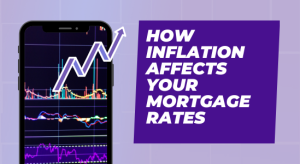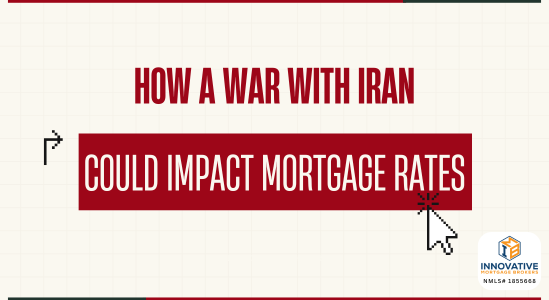As tensions between the United States and Iran continue to escalate, many prospective homebuyers and…
How Inflation Affects Your Mortgage Rates
As a homeowner or potential homebuyer, you may have heard about how inflation can impact mortgage rates. But what does this mean for you? And how can you navigate this complex landscape? At Innovative Mortgage Brokers, we’re here to help you understand these dynamics and make informed decisions about your mortgage in Pennsylvania (PA) or Florida (FL).
Understanding Inflation and Mortgage Rates
Inflation is the rate at which the general level of prices for goods and services is rising. When inflation is high, the value of the dollar decreases. This can lead to higher mortgage interest rates as lenders often raise their rates to compensate for the increased costs they’re experiencing.
On the other hand, when inflation is low, it doesn’t cost much to borrow money, leading to an increase in demand from consumers and businesses. This can result in lower mortgage rates.
The Role of the Federal Reserve
The Federal Reserve, often referred to as the Fed, sets the Federal funds rate, which is the interest rate at which banks lend reserve balances to other banks on an overnight basis. This rate influences all other short-term interest rates in the U.S., including those for auto loans, credit cards, and home equity lines of credit.
When the Fed anticipates higher inflation, they often raise the Federal funds rate to cool down the economy and keep inflation in check. Conversely, if the Fed expects lower inflation, they may lower the Federal funds rate to stimulate economic activity.
The Impact on Mortgage Rates
Mortgage rates are typically long-term interest rates that are influenced by a variety of factors, including inflation expectations, economic growth, and overall demand for mortgage-backed securities. While the Fed does not directly control these rates, their actions and policies can indirectly affect them.
For instance, if the Fed raises short-term rates with the expectation that inflation will decrease, this can signal to investors that the economy is being cooled to prevent overheating. This could lead to lower long-term interest rates, including mortgage rates, as investors shift their money from stocks to bonds. The increased demand for bonds drives up their prices and, inversely, lowers their yields or interest rates.
However, it’s important to note that many other factors can influence mortgage rates, including global economic trends, the housing market’s health, and investor sentiment. Therefore, while the Federal Reserve’s actions are influential, they’re just one piece of a larger puzzle.
Why Choose Innovative Mortgage Brokers?
At Innovative Mortgage Brokers, we’re committed to helping our clients in Pennsylvania and Florida navigate the complexities of the mortgage market.
Here are some reasons why you should consider us:
Expertise: We have a deep understanding of the mortgage market and keep up to date with the current market.
Personalized Service: Every client’s situation is unique. We provide personalized advice tailored to your specific needs and financial goals.
Competitive Rates: We work with a variety of lenders to ensure we can offer competitive rates to our clients.
Comprehensive Services: Whether you’re looking to purchase or refinance a primary residence, investment property, a vacation home (second home), we offer a range of services to meet your needs.
Inflation and mortgage rates can be complex topics, but you don’t have to navigate them alone. Contact us today to see how we can help you make informed mortgage decisions.





